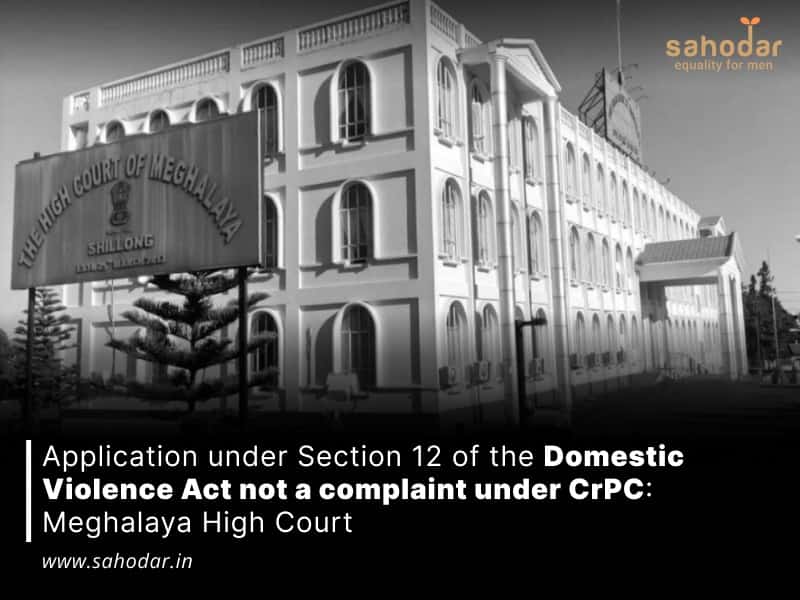During a recent hearing of a petition seeking the quashing of criminal proceedings under Section 12 of the Domestic Violence Act, the Meghalaya High Court ruled that an application made under this section cannot be classified as a “complaint.” As a result, the court determined that the procedures outlined in Sections 200 (Examination of Complainant), 202 (Postponement of Issue of Process), and 204 (Issue of Process) of the CrPC cannot be followed by either party or by the Magistrate.
According to the petitioner, the proceedings initiated under Section 12 of the Domestic Violence Act are of a civil nature. Therefore, the court should first issue a notice to the respondent upon receiving an application filed by the aggrieved party. However, the petitioner argued that the Magistrate did not follow this procedure and instead issued a summons to the petitioner to appear before the court. Additionally, during the proceedings, a bailable warrant of arrest was also issued by the Magistrate, which the petitioner contested.
The petitioner claimed that the Magistrate did not follow the correct procedures outlined in the Domestic Violence Act. Even if the application is considered a complaint, the Magistrate should have used Section 202 of the CrPC to delay the issuance of process against the petitioner, who was reportedly living outside the court’s jurisdiction. In response, the respondents argued that the procedures laid down in Chapter XV of the Criminal Procedure Code do not apply to proceedings under the Domestic Violence Act, which justifies their non-compliance with Section 202 of the CrPC.
The respondents argued that Section 13 of the DV Act only requires a notice of the hearing date to be served to the respondent and that a summons under the Criminal Procedure Code is not necessary for proceedings under Section 12 of the DV Act.
However, after considering both arguments, the court noted that Section 28 of the DV Act clearly states that proceedings under Sections 12, 18, 19, 20, 21, 22 and 23 and offences punishable under Section 31 of the DV Act must be governed by the provisions of the Criminal Procedure Code.
The Court explained that the provisions of the Criminal Procedure Code apply to all proceedings under the sections of the DV Act mentioned earlier, except when the Act itself provides a procedure.
Section 31 of the DV Act establishes that a violation of a protection order or interim protection order is a criminal offense, which is non-bailable and cognizable, and may result in imprisonment up to one year, a fine of up to ₹20,000, or both. This is the only penal provision in the DV Act, the bench clarified.
The bench agreed with the respondents’ argument that a proceeding under Section 12 of the DV Act is not an offense falling under Section 31 of the Act. The bench relied on the decision of the Supreme Court in Kamatchi v. Lakshmi Narayanan 2022 SCC, where the court noted a relevant point made in Dr. P. Padmanathan’s case.
The court held that since an application under Section 12 is not a complaint under Section 2(d) of the Criminal Procedure Code, the procedure for taking cognizance under Section 190(1)(a) of the Code, followed by the procedure in Chapter XV, does not apply to proceedings under the DV Act.
The Court cited the same authority and held that an application under Section 12 of the DV Act is not a complaint, and thus, the procedures under Sections 200, 202, and 204 of the Criminal Procedure Code cannot be followed by the parties or the Magistrate.
When an application under Section 12 is filed, the Magistrate must issue a notice under Section 13 and request a response from the respondent. Consequently, the court found the petition to be without merit and dismissed it.
Source: https://www.livelaw.in/news-updates/meghalaya-high-court-section-12-domestic-violence-act-not-complaint-section-200-crpc-procedure-223118

